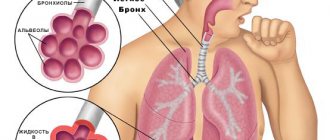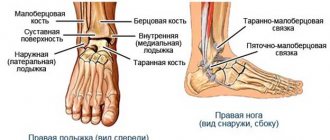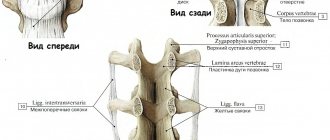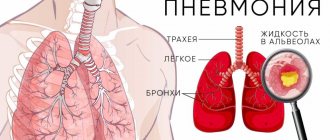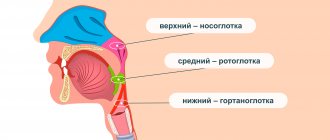More than 30 years of effective work
Consultation with a doctor
Treatment of alcoholism is always associated with difficulties in overcoming traditions and foundations. It is not always easy to decide to seek drug treatment. And yet, most people suffering from alcohol addiction sooner or later come to the conclusion that they cannot do without the intervention of a specialist. The Transfiguration Clinic in Moscow provides effective, individually tailored treatment for alcoholism on anonymous terms. Only effective and clinically proven techniques are used.
The therapeutic course includes restorative therapy, which allows you to compensate for pathologies formed as consequences of drinking alcoholic beverages. Our therapy focuses on the underlying factors that cause cravings for alcohol and the consequences of alcohol abuse.
Why is alcoholism treatment needed?
Unfortunately, many people are still convinced that this is not a disease at all; they can cure it on their own by stopping drinking by force of will. However, any competent specialist will say that this is not so: alcoholism is a complex, serious illness associated with persistent metabolic disorders. Here are the stages of its development:
- Mental dependence. It is difficult to distinguish it from everyday drunkenness. The difference lies in the persistent attachment to alcohol and the constant search for reasons to drink it. It lifts your spirits and seems to improve your quality of life.
- Physical dependence. There is a gradual increase in alcohol tolerance (tolerance). In order to experience the desired degree of intoxication, increasingly higher dosages are required. Often, addicts mistake this for a special type of hardening or endurance and are proud of the fact that they can drink a lot and not get drunk. At the same time, the next day after the next excess, a bad condition appears (tremors in the body, high blood pressure, palpitations, etc.). This feeling (hangover, withdrawal symptoms) can be relieved with a small dose of alcohol. After improving your health, a person feels cheerful, healthy and ready to work. This indicates a developed metabolic disorder that remains with the addict for the rest of his life, even if he does not drink alcohol.
- Complications. The body stops tolerating large doses of ethanol. It is enough for such a person to drink a little and he quickly becomes drunk. Against this background, severe complications develop from the internal organs, central and peripheral nervous systems, the patient drops out of society, losing all previously developed connections.
Is it possible to help an addict? Undoubtedly. One of the country's first private alcohol addiction treatment centers, Preobrazhenie, has been dealing with this problem for many years. Professionals with extensive experience work here. They can help the patient at any, even the last stage of the disease.
How alcoholism is treated in our clinic
Treatment measures are carried out in stages and include:
- sobering up, removal from the body of ethanol metabolic products, which are strong toxins;
- restoration of normal metabolism and elimination of the consequences of toxic effects on the body;
- suppression of mental cravings for alcohol using individually selected psychotherapeutic techniques;
- consolidation stage: at the request of the patient, he undergoes a consolidation session of psychotherapy with the introduction into the subconscious of a ban on alcohol or a drug that causes his intolerance.
Specialists at an alcohol addiction treatment clinic in Moscow select an individual treatment plan for each patient. This allows you to achieve long-term stable remission. Most patients no longer return to their addictions.
Particular attention is paid to spiritual education in special classes. The purpose of these meetings is not to teach the Law of God, but to jointly reflect on various aspects of human life. The clinic has a hospital church, which is cared for by an Orthodox priest, the rector of the temple.
Content:
- Psychological disorders associated with alcohol abuse
- Features of psychological assistance to alcoholics
- Methods of psychotherapeutic treatment of alcohol addiction
- Psychological coding for alcoholism
Now it’s no secret to anyone that alcoholism is not a whim or debauchery, but a serious disease .
The reasons for its occurrence are mainly psychological: troubles at work and school, misunderstanding and conflicts in the family, financial problems, loss of a loved one, social alienation, lack of self-confidence, etc. We cannot exclude, of course, a genetic predisposition and a physiological component. But in any case, a destructive illness requires long-term complex treatment and the help of a psychologist at all stages.
His support will allow not only to identify the factors that influenced the onset of addiction, but also to correctly develop motivation, mobilize internal forces for healing, and carry out the entire treatment course with minimal losses for mental and physical health. Without this, complete victory over the disease without relapses in the future is impossible.
Sobering up
This stage can be carried out:
- on an outpatient basis – carried out in the initial stages of the disease;
- at home – visit by an experienced narcologist trained in providing emergency assistance; for sobering up, a drip is placed, medicinal solutions are administered that flush out toxic products, restoring the functioning of internal organs and the nervous system;
- in a hospital - patients who have been on a long-term (more than 7 days) binge, have severe diseases of internal organs or have suffered psychosis (delirium tremens) are subject to hospitalization; in a hospital they can receive all the necessary care, including intensive care; complete suppression of mental cravings for alcoholic beverages.
Psychotherapeutic techniques begin to be used at the sobering stage. The doctor unobtrusively talks with the addict and his relatives, guiding them towards full-fledged complex therapy.
After sobering up, the most suitable method of psychotherapeutic influence is selected for the patient: individual or group psychotherapy sessions using various techniques. At the alcoholism treatment center in Moscow, great importance is attached to the spiritual revival of the individual.
Coding
Coding is the consolidating stage of therapy. It is carried out at the request of the patient and can be:
- medicinal - in the form of injection or sewing into the muscle of drugs that cause alcohol intolerance (Torpeda, Esperal, SIT, NIT, etc.); depending on the type of medication and its dosage, the effect will last for a certain time;
- psychological coding - the introduction of a ban on use in the subconscious of the addict, also for a certain period, agreed with the patient.
Prices for services:
| Binge withdrawal and home call service | Price |
| Single dropper - withdrawal from binge drinking (Super price!) | 3,100 rub. 2,500 rub. |
| Double drip - withdrawal from binge drinking | 5,100 rub. |
| Triple drip - withdrawal from binge drinking (SPECIAL!) | 5,500 rub. 5,100 rub. |
| VIP detox therapy | 7,500 rub. |
| Detoxification + coding for 1 year | 8000 rub. |
| Detoxification + coding for 2 years | 9,800 rub. |
| Visit of a narcologist to your home in Moscow | 1,500 rub. |
| Visit of a narcologist to your home outside the Moscow Ring Road (every 10 km) | 500 rub. |
| Transportation to the hospital accompanied by a doctor | by agreement |
| If the patient refuses therapy, a penalty is paid | 3,100 rub. |
| Coding | Price |
| Disulfiram coding for 1 year | 8,600 rub. |
| “Double block” coding for 1 year | 6,800 rub. |
| Triple block coding for 1 year | 8,500 rub. |
| Coding Algominal for 1 year (SPECIAL!) | 4,500 rub. |
| Algominal coding for 2 years | 6,500 rub. |
| Algominal coding for 3 years | 7,500 rub. |
| Acvilong coding for 1 year (Super price!) | 4,500 rub. |
| Acvilong coding for 2 years | 6,500 rub. |
| Acvilong coding for 3 years | 7,500 rub. |
| Naltrexone implantation for 3 months | 18,500 rub. |
| Naltrexone implantation for 5 months | RUB 24,500 |
| Implantation Esperal (Esperal) for 1 year | 8,300 rub. |
| Implantation Esperal (Esperal) for 2 years | 9,500 rub. |
| Implantation Esperal for 3 years | 12,000 rub. |
| Vivitrol for 1 month (SPECIAL!) | 30,000 rub. |
| Coding using the Dovzhenko method for 1 year | 10,500 rub. |
| Coding using the Dovzhenko method for 2 years | by agreement |
| Coding using the Dovzhenko method for 3 years | by agreement |
| Laser coding of alcoholism | by agreement |
| Decoding | from 3,200 rub. |
| Provocation during coding | 1000 rub. |
| Doctor consultations | Price |
| Initial consultation by phone | For free |
| Initial consultation for relatives by phone | For free |
| Consultation with a psychologist | 3,600 rub. |
| Consultation with a psychotherapist | 3,600 rub. |
| Consultation with a psychiatrist-narcologist | 3,600 rub. |
| Consultation with a psychiatrist-narcologist at home | 5,500 rub. |
* A full list of clinic services is presented on the “Prices” . Please note that this price list is not an offer and in order to avoid possible misunderstandings, please be sure to check the cost of services on the day of your call by calling +7 or 8 (the call is free!).
How much does treatment for alcoholism cost?
The clinic has average prices, which depend on:
- stages of the disease;
- the age of the patient and the presence of chronic illnesses.
| Service | Price in rubles |
| Appointment with a narcologist | from 2500 |
| Outpatient program | from 5500 |
| Inpatient therapy | from 8000 |
| Coding | from 7000 |
| *Price may vary. Check by phone. | |
What is the effectiveness of services
The results are higher than in Russia as a whole. Most of those treated do not drink alcohol for a long time; many of them have maintained a sober lifestyle for more than 30 years. If you really want to help your loved one who is addicted to alcohol, contact us.
Benefits of in-clinic therapy
- guarantees of anonymity;
- comfortable conditions;
- unique author's techniques;
- using only effective techniques;
- complete security;
- individual approach to the problem;
- highly qualified specialists;
- connecting theory and practice;
- only highly effective and modern drugs;
- accelerated goal achievement.
How to get an alcoholic to get treatment?
The hardest thing is getting an alcoholic to accept help. The majority do not realize the seriousness of the problem, and the few who understand are either afraid or embarrassed by publicity. For the latter, anonymous treatment for alcoholism becomes a way out of the situation; for the former, they will have to be convinced.
For therapy to be effective, the patient’s desire and consent is necessary, and it is very difficult to obtain. Relatives should realize that an alcoholic is a pathological liar, ready to promise anything for the sake of the next dose; vows for him are empty space. To solve the problem, it is necessary to change the alcohol addict’s train of thought by showing the real picture of what is happening.
- Talk to him calmly and constructively, but only when he is calm, not under the influence of alcohol, or in a state of aggression.
- Show him a video recording made during the period of inappropriate behavior.
- During the conversation, refer to the opinion of an authoritative person for the alcoholic (you can try to involve an influential participant in the conversation).
- Talk about the danger, backing up your words with real facts, statistics, and medical reports.
Often a more effective option is a service in which our psychologist comes to your home. A specialist can convince you to accept help and undergo treatment.
Doesn't want to be treated?
We will help you find an approach to your loved one and convince them to seek treatment for addiction in your specific case.
- Help in persuasion
- Completely anonymous
- 24/7 psychological support
- For free
Treatment of different stages of alcohol addiction
Practice has established that for a successful result it is necessary to carry out complex therapy taking into account the consequences of alcohol intoxication.
The time of onset of chronic intoxication depends not only on the stage of alcoholism, duration of use and quality of alcoholic beverages taken, but also on the constitutional vulnerability of individual body systems. We cannot discount the social consequences, working and living conditions.
When drinking alcohol, the toxic signs of intoxication intensify (including the next morning - headache, weakness, lack of appetite, relaxation); the sedative effect is reduced; both in intoxication and in a sober state, vitality, motor activity, and mood increase; Appetite, sleep, and sexual function are not disturbed. Drinking alcoholic beverages during daylight hours does not cause discomfort; the feeling of satiety in intoxication remains, vomiting in case of overdose, but the next morning the disgust when remembering alcohol disappears. An increase in vitality can be replaced by long periods of irritability and conflict (which is relieved in a state of intoxication).
Treatment of alcoholism in the first stage
The duration of the stage, depending on the intensity of alcohol consumption and the individual parameters of the body’s development, can last from 1 year to tens of years.
Syndrome of altered reactivity: a 4-5-fold increase in tolerance, the ability to take high doses daily, disappearance of vomiting in case of overdose, a pronounced activating effect of alcohol with preserved sedation, forgetting individual episodes of the period of intoxication (palimpsests).
Mental dependence syndrome: constant thoughts about drinking, high mood in anticipation, feeling of dissatisfaction when sober. The attraction is still controllable. In a moderate degree of intoxication, mental functions accelerate, but some of them with a loss of quality (for example, superficiality, distractibility with an expanded attention span).
There is no physical dependence syndrome, and the consequences of intoxication may be limited to asthenic manifestations, temporary somatoneurological dysfunctions with nonspecific symptoms.
Treatment of alcoholism in the second stage
According to statistics, it lasts from 5 to 15 years. Altered reactivity syndrome: maximum alcohol tolerance; drunkenness is daily, breaks are explained by external circumstances (lack of money, conflict) and create the impression of periodicity - so-called pseudo-binges. The sedative effect of alcohol disappears, only the activating effect is observed. Palimpsests are replaced by complete amnesia at the end of intoxication with external orderliness of behavior, in contrast to a non-alcoholic, which occurs during soporotic intoxication with immobility; Initially, memory loss occurs when taking high doses.
Mental dependence syndrome: well-being depends on the persistence of intoxication; in a sober state – disorganization of mental activity, inability to perform mental work; the attraction that occupied the thoughts, determined the mood and feelings, is now suppressed by intense physical dependence. The latter is determined by an uncontrollable attraction to alcohol, dictating behavior that distorts ideas about moral values and relationships. In a sober state, the patient is relaxed, depressed, irritable, and incapacitated. Drinking alcohol restores physical function, but loss of control usually leads to excessive intoxication.
A sharp break in drunkenness causes withdrawal syndrome in the form of sympathico-tonic overexcitation in the mental and somatoneurological spheres: exophthalmos, mydriasis, hyperemia of the upper body, pastiness, large hot sweat, tremor of the fingers, hands, tongue, eyelids, gray-brown, thick coating on tongue, nausea, vomiting, loose bowels, urinary retention, lack of appetite, insomnia, dizziness and headache, pain in the heart and liver. An increase in anxiety, restlessness at night, and a seizure may be harbingers of acute psychosis.
Treatment of alcoholism in the second stage is complicated by the consequences of intoxication and profound mental disorders. This syndrome is represented by a decrease in personality level, loss of creative potential, weakening of intelligence, psychopathization, and affective disorders. Delusional ideas of jealousy, expressed at first only in a state of intoxication, can later develop into persistent delusions, extremely dangerous for the patient and his loved ones.
Neurological examination reveals neuritis, scotomas, narrowing of visual fields, decreased hearing at certain frequencies, ataxic disorders, nystagmus, impaired accuracy and coordination of movements, and possible acute cerebral syndromes. Somatic examination reveals damage to the cardiovascular system, liver, etc.
Any intercurrent illness, injury, or surgical intervention can be complicated by acute alcoholic psychosis. High alcohol tolerance creates cross-tolerance to some anesthetics.
Treatment of alcoholism of the third stage
Duration – lifelong. As a rule, people with this disease, due to the developing consequences of alcohol consumption and without proper help, live no more than 5-10 years. Therapy should be started only in a hospital setting. This is due to the presence of severe complications of this disease.
The third stage is characterized by altered reactivity and decreased tolerance to alcohol. Many days of drunkenness ends in psychophysical exhaustion (true binges) followed by abstinence from several days to several months, systematic (daily) drunkenness may persist, deep intoxication is achieved in small doses. The activating effect of alcohol is reduced, it only moderately levels out the tone, and almost every drinking session ends in amnesia.
Mental dependence syndrome: the severity of symptoms is insignificant due to the severe mental changes that have occurred by this time.
Physical dependence syndrome: uncontrollable attraction determines the patient’s life; the lack of quantitative control combined with decreased tolerance often leads to fatal overdoses. Intense attraction is also manifested by a loss of situational control (there is no criticism of the place, circumstances, company of drinking buddies), which is facilitated by the ensuing loss of intellectual capabilities.
Withdrawal syndrome is represented mainly by autonomic disorders: lethargy, immobility, drop in cardiovascular tone, pallor, cyanosis, cold sweat, sunken eyes, sharpened facial features, muscle hypotonia, ataxic disorders (up to the inability to move independently).
Syndrome of the consequences of intoxication: not only functional, but also organic lesions of vital systems, in the genesis of which, in addition to the toxic effects themselves, metabolic and trophic disorders, enzymopathies, neurotransmitter dysregulation, etc. play a role.
Rehabilitation
Rehabilitation is the most important stage in overcoming addiction. Returning to normal life and the same social circle can lead to a relapse. To prevent a breakdown, mandatory rehabilitation is carried out. It consists of supportive psychotherapy, occupational therapy and creative activities.
The addict prepares to adapt to society and re-learns social skills. In a rehabilitation center you can acquire an interesting hobby that will bring pleasure, occupy your leisure time and relieve you of thoughts about drinking. If desired, patients can gain new professional skills and further assistance in finding employment.
Features of alcoholism of the third stage
There is devastation of the psyche, loss of emotional range, primitive affects (cruelty, anger), the manifestation of which is mitigated only by a drop in excitability and impoverishment of will. Fluctuations in the emotional background often look like dysphoria rather than depression. Dementia is often represented by pseudoparalytic manifestations.
Chronic hallucinosis, alcoholic paraphrenia and delusions of jealousy are possible.
The patient is not capable of organized productive activity and needs coercion and control. Neurological examination reveals encephalopathy and polyneuritis; up to 20% of old drunkards suffer from epileptic seizures, sometimes acute Gaye-Wernicke syndrome develops, which is life-threatening.
A somatic examination reveals pathology of all systems and organs; A combination of cardiomyopathy and liver damage is typical. Diagnosis. Patients look older than their years, their hair is tousled and dull. The face initially has a uniform pinkish color (which, combined with pastiness, gives the impression of “steaminess”), but over the years it becomes hyperemic. With abstinence, hyperemia gradually disappears, and against the background of pallor, telangiectasias appear on the wings of the nose, cheeks, neck, and upper chest. Skin turgor is lost. Muscle tone is restored when drinking alcohol. Relaxation of the orbicularis oris muscle gives a special appearance to facial weakness and volitional promiscuity. Carelessness in clothing and uncleanliness are often noted.
Treatment of alcoholism in a hospital
According to European authors, from 20 to 40% of the total bed capacity is occupied by patients with alcohol dependence and persons whose condition has worsened due to alcohol abuse.
The behavior of an alcoholic in a hospital is characteristic: carelessness, frivolity, lack of an adequate reaction to his condition and feelings of distance in communication with staff and other patients, violation of the regime, including the use of alcoholic beverages; visits from drunken visitors. Not only the patient’s frequent visits to the doctor (for alcoholism, up to 10-12 visits a year), but also the characteristics of his behavior and personality should help the local doctor suspect addiction and refer the patient for consultation with a narcologist.
The presence of psychosomatic disorders in the family, neuroticism and even psychopathization of a non-drinking spouse are found with great frequency in families of alcoholics. The pathology of children is indicative, which is noticed by attentive pediatricians.
Literature:
- Mendelson, Alexander Leontievich (1865-1940). Experience in treating alcoholism by suggestion: Dokl. 9 Pies. Congress in St. Petersburg, 1994 / Dr. med. A.L. Mendelssohn. – Moscow: typo-lit. t-va I.N. Kushnerev and Co., 1994. – 17 p.; 23.
- Entin, Gennady Mikhailovich. Treatment of alcoholism / G. M. Entin. – M.: Medicine, 1990. – 413, [2] p.; 22 cm; ISBN 5-225-01589-1 (translated) : 2 r.
- Treatment of alcoholism: Scientific-thematic. Sat. / Under general ed. A. L. Hamburg. – Saratov: Media, 1980. – 103 p.; 20 cm. – (Proceedings: / / Sarat. medical institute. T. 102 (119); ;).
- Nikitin, Yuri Ivanovich. Prevention and treatment of alcoholism / Yu. I. Nikitin. – Kyiv: Health, 1990. – 165, [1] p.; 20 cm; ISBN 5-311-02501-8: 60 volumes.
Special programs for the treatment of alcoholism
Alcoholic women who continue to drink alcohol during pregnancy give birth to a so-called alcoholic fetus with gross morphological abnormalities: incorrect head size and the relationship of the head, body, limbs, facial and cerebral parts of the skull; spherical or deep-set eyes, wide bridge of the nose, recessed base of the nose, underdevelopment of the jaw bones, shortening of the long bones.
Children of alcohol-abusing parents often suffer from congenital small cerebral insufficiency (excessive mobility, lack of concentration, desire for destruction, aggressiveness); their motor and mental development and mastery of practical skills are slowed down or unsatisfactory. In all cases, when parents are drunk, children grow up in a psychotraumatic situation and show signs of neuroticism (logoneurosis, enuresis, night terrors), behavioral disorders (stubbornness, aggressiveness, running away from home) and emotions (anxiety, depression, suicidal attempts); their mental development is impaired, difficulties in learning and contacts with peers are obligatory.
Laboratory data
The analysis confirms the fact of chronic alcohol intoxication: high and fluctuating 2-3-fold within 1 week - 10 days, the activity of the complex of enzymes GGT, AST, ALT (the activity of GGT in combination with ACT increases most often and significantly); fluctuations in activity indicate the intoxication nature of the deviations and make it possible to distinguish them from enzymopathies as a somatic pathology.
With abstinence during a period of domestic drunkenness or prodrome, enzyme activity returns to normal; the formed disease maintains high activity of GGT, ALT and AST for up to six months. In advanced cases of alcoholism, enzyme parameters often remain within normal limits (depletion of functional responses), but at this stage of the disease the diagnosis does not cause difficulties.
An increase in the corpuscular volume of red blood cells is also an indicator of chronic alcohol intoxication. Treatment is carried out in narcological clinics and hospitals, in specialized departments and wards of psychiatric hospitals by narcologists and psychiatrists.
Tasks
The goals of therapy are to relieve withdrawal symptoms, the consequences of intoxication, suppress desire, create the inability (sensitization, conditioned reflex aversion) to drink alcohol, change the attitude towards drunkenness (psychotherapeutic reorientation, hypnosis). Refusal of treatment requires compulsory referral. Therapy in the general medical network (calling a doctor to your home, “home drips”) is not effective and is often dangerous in cases of heavy drinking for more than 3 days in those who frequently take alcohol.
For patients with alcoholism, the symptomatic administration of sedatives and hypnotics is contraindicated due to the danger of polysubstance abuse.
In the general medical network, cases of the development of acute alcoholic psychosis (delirium tremens) are possible, which should be quickly stopped, while dehydration and maintenance of cardiovascular activity are necessary. This can only be done in a specialized hospital.
Forecast
The prognosis of the course depends on the duration and intensity of abuse, the type of alcoholic beverages, the use of surrogates, and the nature of the consequences of intoxication. Death occurs as a result of decompensation of vital systems due to binge drinking, excesses, withdrawal states, and intercurrent diseases, in which the mortality rate of alcoholics is 5-7 times higher than the average.
Anti-alcohol outpatient treatment only stops the development of the disease at a certain stage. In advanced cases, mental and somatoneurological disability increases, despite abstinence from alcoholic beverages, due to the resulting deficit of neuroendocrine regulation, profound metabolic disorders, nutrition, organ pathology (atrophy of brain tissue, dysfunction of the liver, pancreas, etc.).
Symptoms
When taking alcoholic components, intoxication occurs. The pathogen plays an important role in this. The consequences of this are the indicator that ethyl alcohol has on the body. In this case, excitement occurs, psychomotor functions increase, and the thought process weakens. If the measure is excessively increased, the functions of the organs are depressed. Directed poisoning occurs with substances of the neutropronic subspecies. Psychological and physical excitement begins to disappear, turning into dullness of reflexes and stunned consciousness. In specific cases, this leads to coma.
Most drinkers experience the following symptoms:
- Memory lapses or short-term amnesia. In the first stages of abuse, there are disruptions in the center responsible for memories. It is difficult for him to remember a few minutes, seconds, a certain period of time. This period falls on the corresponding state, clouded by alcohol vapors. Subsequently, amnesia lasts longer and increases as the disease progresses.
- Apathy. This indifference to any events, with instability of the emotional plane, dulling of feelings of shame, participation, pity, manifests itself in the majority of drinkers. At the same time, these individuals are indifferent to the actions surrounding them and what is happening around them. But they also ignore their needs: they don’t want to eat, take care of their body hygiene, or go to work. They are also not going to do their housework.
- The appearance of dysphoria, developing into hysteria. Women's alcohol addiction often implies a more serious nature due to the woman's mental state. Very often there is a possibility of noticing a sharp transition from a gloomy, melancholy, irritated state of health to outbursts of aggression and violent behavior. Each time this is accompanied by screaming, crying, and the desire to attract everyone's attention.
- Endogenous psychosis turning into paranoia. Many alcohol addicts believe in a fictitious existence of persecution, the intentions of others to harm him, even to the point of taking his life. This nonsense is based on convincing others of the correctness of this judgment, presenting convincing arguments.
- Schizophrenia. This is a severe form of brain disorders, subsequently obsessions, a complete or partial change in thinking and severe delusions, hallucinations, affective disorders, and catatonia. Most often, this symptom appears in the last stages of personality degradation.
- Delirium tremens. This term is called acute psychosis. This disease manifests itself during a hangover, withdrawal syndrome a few days after the end of drinking alcohol-containing liquids. At the same time, the patient develops a feeling of fear, agitation of motor functions, and a confused sensation at the location and in time periods. This symptomatology intensifies during the evening segment of the day, at night.
Complex treatment and rehabilitation therapy
Treatment of alcoholism in our clinic is carried out simultaneously in two directions. At the first stage, with the help of new generation drugs, we achieve complete cleansing of the body from metabolic products of alcohol, toxins and waste. We normalize the functioning of all organs and systems of the body, eliminate functional failures, and restore the protective properties of the body.
The ultimate goal of this direction is the relief of withdrawal symptoms in the shortest possible time and the overall improvement of the body. This achieves the effect of normalizing the state of the central nervous system and its regulatory effect on other systems of the body. The procedures significantly relieve tension, stress, physical and mental fatigue, improve well-being, increase efficiency, and normalize sleep.
Eliminating physical dependence is destroying the foundation of alcoholism, but this is only half the battle. Therefore, the second direction is the liberation of consciousness from pathological associative connections with alcohol. Classic principles of psychotherapy are used with the addition of elements of psychoanalysis. There are conversations with a psychologist, individual and group classes, and a course of lectures on various topics related to the use of alcoholic beverages. Classes are conducted only on a conscious level; we do not use any methods of pressure or influence on the subconscious. Additionally, individual lessons and lectures can be provided.
Spirituality
The program includes a course of family therapy. These are lectures for relatives of patients, which are held with the aim of harmonizing family relationships. Joint psychotherapy sessions are possible, during which a course of lectures will be given on various problems arising from alcohol addiction.
Treatment of alcoholism may include blocking the painful addiction to intoxication using the prohibitive method (coding). The essence of all prohibitive procedures is to create a chemical barrier to prevent the patient from drinking alcohol. The effect is achieved due to a combination of the pharmacological effect of the drug and psychological awareness of the severe consequences of drinking alcohol. The “coding” technique is carefully selected individually, without disturbing the normal biological, chemical and psychological processes of the body.
We help, even if previous treatment was not effective!
Risk factors and consequences of the disease
The risk group for the development of addiction includes, first of all, children of alcoholics and those growing up in socially disadvantaged families. Since childhood, a child considers drinking to be a norm of behavior and a way to avoid problems. In the future, he projects this approach onto himself, without recognizing its immorality.
But often the development of alcoholism is influenced by the social environment, especially in adolescence, when friends have a decisive influence on behavioral factors.
As an adult and an accomplished member of society, addiction can form due to regular use, when a person tries to get away from stress and emerging problems in this way. Usually, he himself does not realize the moment when he becomes dependent and until the last moment he will claim that he controls his cravings.



